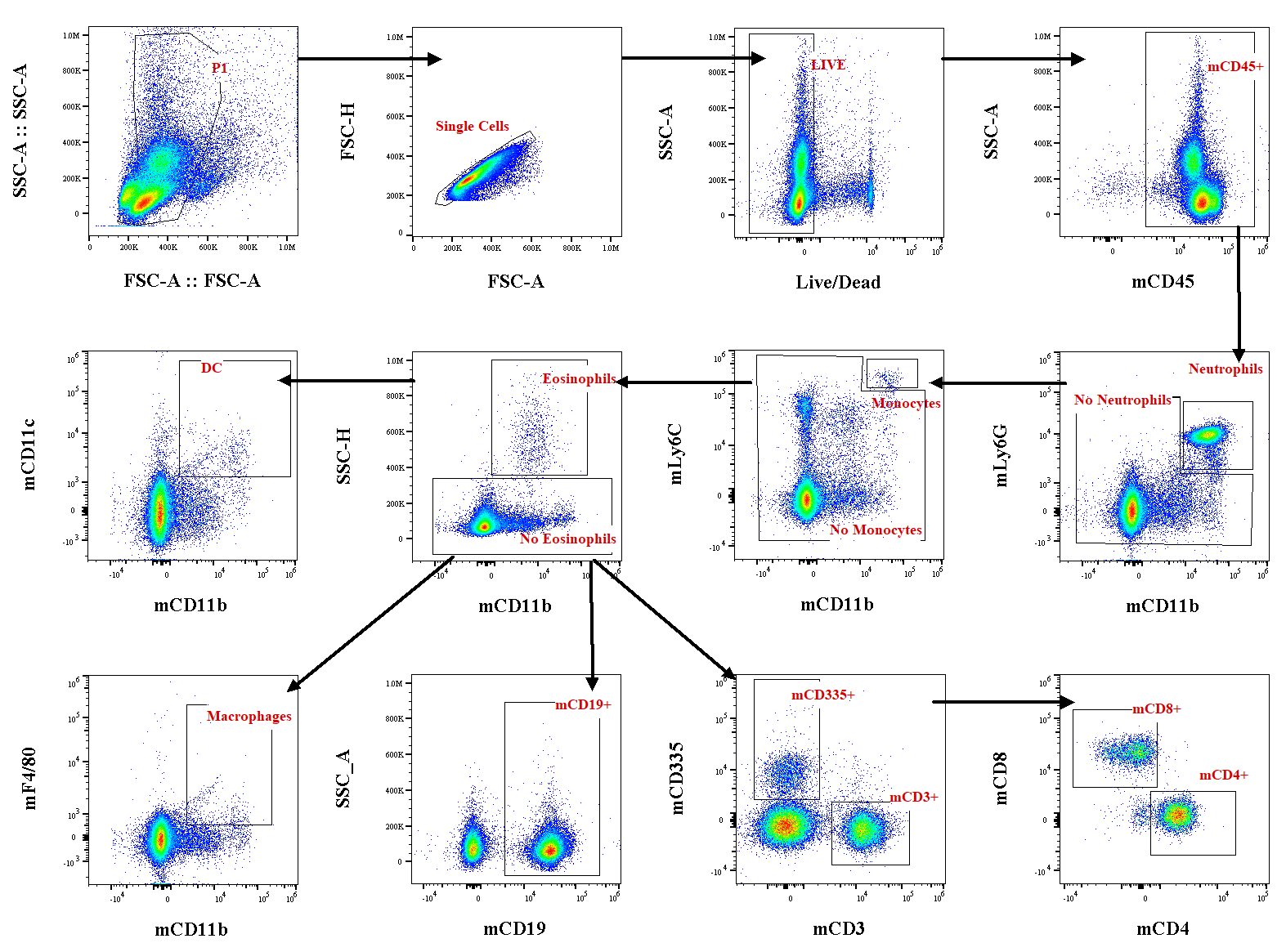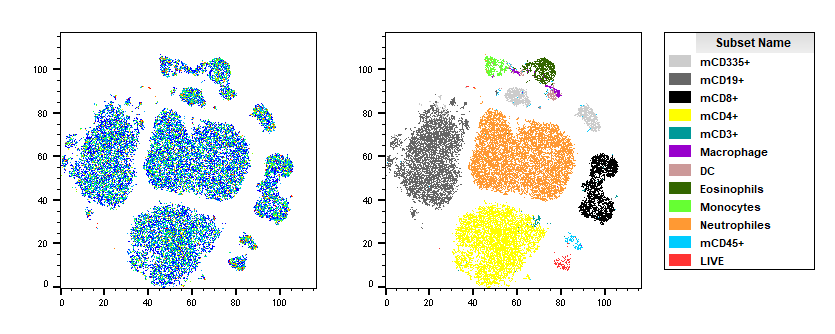Mouse immune cells can be affected by gene knockout, target modification, and drug treatment. The mouse immune system can be assessed by analyzing the proportions and quantities of T cells, B cells, NK cells, monocytes, granulocytes, macrophages, DC cells, and other cell populations in the peripheral blood and spleen. Through flow cytometry analysis of various immune cell types, we can identify the cellular populations affected by gene modifications or drug treament, thereby providing insights into their potential functions.
Experimental Case Study: Analysis of peripheral blood in BALB/c mouse (12-color panel)
Population | Gating Step | ||||
Total Leukocytes | Live Single | mCD45+ | / | / | / |
Neutrophils | Live Single | mCD45+ | mCD11b+ | Ly6G+ | / |
Monocytes | Live Single | Not Neutrophils | mCD11b+ | Ly6C hi | / |
Eosinophils | Live Single | Not Monocytes | mCD11b+ | SSC-H hi | / |
Macrophages | Live Single | Not Eosinophils | mCD11b+ | F4/80+ | / |
DC Cells | Live Single | Not Eosinophils | mCD11b+ | mCD11c+ | / |
T Cells | Live Single | Not Eosinophils | mCD3+ | mCD335- | / |
B Cells | Live Single | Not Eosinophils | mCD19+ | / | / |
NK Cells | Live Single | Not Eosinophils | mCD3- | mCD335+ | / |
Th Cells | Live Single | Not Eosinophils | mCD3+ | mCD4+ | mCD8- |
Tc Cells | Live Single | Not Eosinophils | mCD3+ | mCD4- | mCD8+ |


Advantages
With extensive experience in immunocyte analysis detection, we can analyze immune cells from many different tissues like blood, spleen, lymph nodes, bone marrow et al.
GPT provides not only routine immune subset panel tests but also offers customized services to detect unique cell populations and rare cell populations.

